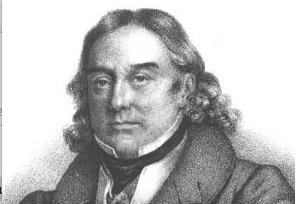 The Larrey Society has announced full details of the inaugural Larrey Lecture which celebrates the 250th anniversary of the birth of Dominique Jean Larrey, the 17th century military surgeon, acknowledged by many as the father of the modern day ambulance service.
The Larrey Society has announced full details of the inaugural Larrey Lecture which celebrates the 250th anniversary of the birth of Dominique Jean Larrey, the 17th century military surgeon, acknowledged by many as the father of the modern day ambulance service.
The first lecture entitled The Ambulance Service – Past, Present and Future – will be presented on 13 July 2016 in the Max Rayne Auditorium at the Royal Society of Medicine by Professor Douglas Chamberlain, CBE, KSG, the world famous British cardiologist who founded the first paramedic unit in Europe in 1971 which in turn led to the creation of the paramedic profession and revolutionised pre-hospital clinical care.
Other speakers at the event will be Professor Andy Newton, President, The Larrey Society and Chairman, College of Paramedics and Dr Carl Gwinnutt, President, Resuscitation Council (UK), and David Davis, Founder & Chairman of The Larrey Society, the cross-sector “think tank” which has taken the Larrey name and principles of innovation for its research and advocacy work to influence ambulance policies to meet the needs of all patients in the 21st century.
The Larrey Lecture Programme has been established as an annual event when a distinguished figure will be invited to share their insights and predictions as a contribution to the national debate on the nation’s healthcare services.
Professor Newton said: “Douglas Chamberlain’s contribution to the medical profession in general and to pre-hospital clinical care in particular, is unrivalled. His past achievements set in motion the paramedic profession which still stands to this day but he has also remained closely involved and his views on the future role of paramedicine will undoubtedly be equally relevant in the years ahead.”
Chamberlain was born in Cardiff in 1931, the son of a coal merchant. At school it was discovered he had a condition now called dyslexia but with extra help he passed the entrance exam to Queens’ College, University of Cambridge to study medicine, qualifying as a doctor in 1956 as Bachelor of Medicine, Bachelor of Surgery (MB, Chir).
During his 21 years at the Royal Sussex County Hospital as a consultant cardiologist, ambulance staff were trained under his direction in resuscitation; this was a pivotal moment in the development of the paramedic profession and Chamberlain’s work here and subsequently are acknowledged as the naissance of paramedics in Europe.
Chamberlain was instrumental in the formation of the College of Paramedics and today paramedics are acknowledged as an autonomous and regulated profession; they are also still recognized for their abilities in cardiac care – as was first discovered by Chamberlain when teaching ECG recognition and cardiac care to nurses, doctors and ambulance personnel. In this period, Chamberlain developed his 10 Rules of a normal ECG, a foundation to ECG interpretation used all over the world to this date.
Though now in his 80’s, Chamberlain is an Honorary Advisor to South East Coast Ambulance Service NHS Foundation Trust and London Ambulance Service NHS Trust and ‘is available any time of the day or night to take calls from paramedics’.
The event is being sponsored by Smartgate Solutions, the York-based company which provides a Quality and Compliance systems for the Health and Social Care, Security and Transport sectors; the Society’s nominated charity, TASC, The Ambulance Services Charity, will benefit from funds raised at the event.
If MJA members would like to attend then email to guarantee a place for the lecture.


Recent Comments